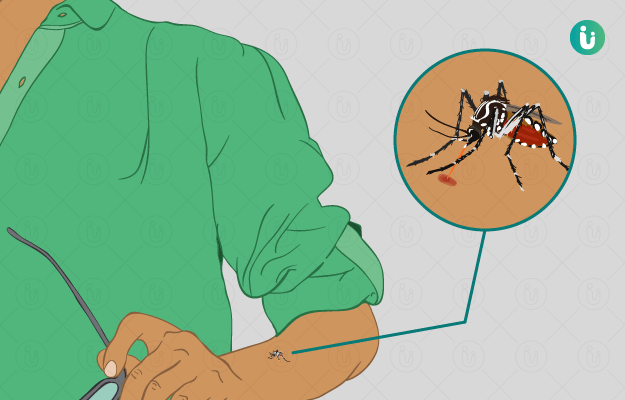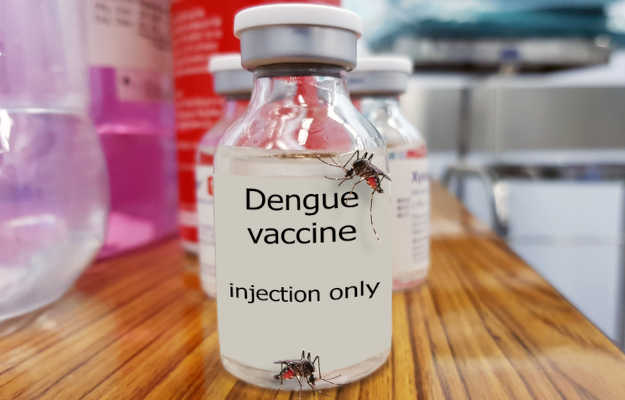Summary
Dengue is a type of viral infection spread by mosquitoes. There are four types of viruses that cause the disease and dengue can result from either of these. Once a person gets infected with any one type of the dengue viruses, a lifelong immunity to that specific type is developed along with a short-term (almost two years) of partial resistance to the other types, but all the four species may eventually infect a person. During an epidemic, any or all the types of dengue virus can be in circulation.
The dengue virus is transmitted from one person to another by the female Aedes aegypti mosquito. The mosquito itself acquires the virus while feeding on the blood of an infected person. Symptoms of dengue include sudden onset of high-grade fever, severe headache, nausea, pain behind the eyes, joint pain, excessive tiredness, body ache, loss of appetite, and skin rash. While fever and other symptoms usually last about one week, the associated weakness and loss of appetite may persist for several weeks.
Dengue fever has no specific antiviral treatment available currently. Supportive care with the use of medicines to bring down the fever, fluid replacement, and bed rest is recommended. Complications include dengue hemorrhagic fever, which if left untreated, most likely progresses to dengue shock syndrome.

 Doctors for Dengue Fever
Doctors for Dengue Fever  OTC Medicines for Dengue Fever
OTC Medicines for Dengue Fever
 Dengue Fever articles
Dengue Fever articles

 Ayurvedic Treatment of Dengue Fever
Ayurvedic Treatment of Dengue Fever
 Diet for Dengue Fever
Diet for Dengue Fever
 First Aid for Dengue Fever
First Aid for Dengue Fever
 Homeopathic Treatment of Dengue Fever
Homeopathic Treatment of Dengue Fever



































 Editorial Team
Editorial Team


 Dr. Ayush Pandey
Dr. Ayush Pandey


 Dr. Anurag Shahi (AIIMS)
Dr. Anurag Shahi (AIIMS)












